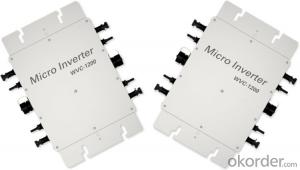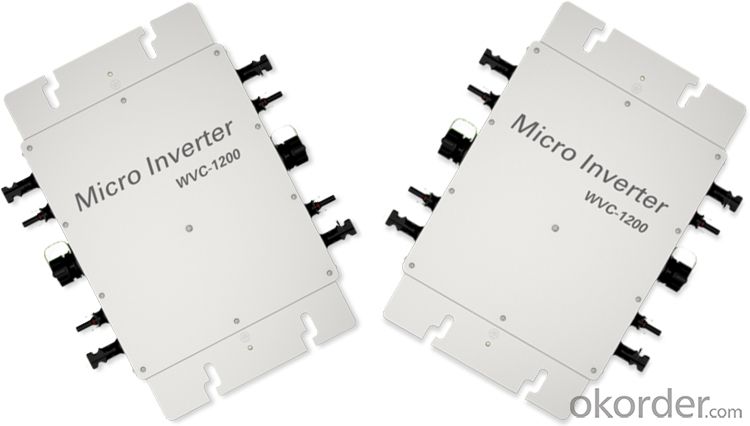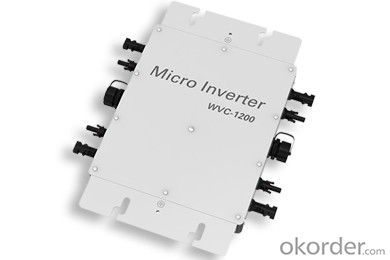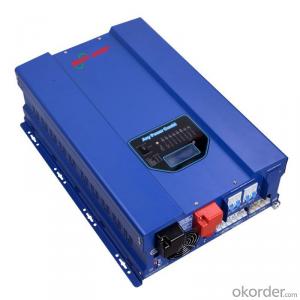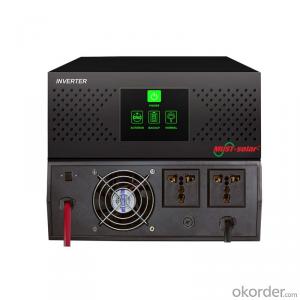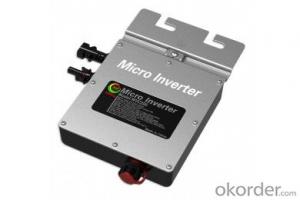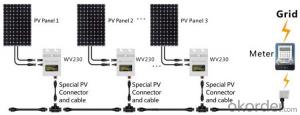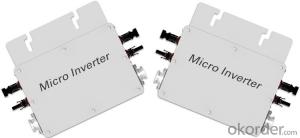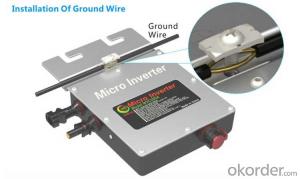Tesla Solar Inverter - KD-WVC1200 Series Micro Inverter:High Efficiency & Best Cost-Effectiveness
- Loading Port:
- China main port
- Payment Terms:
- TT or LC
- Min Order Qty:
- 1000 pc
- Supply Capability:
- 100000 pc/month
OKorder Service Pledge
OKorder Financial Service
You Might Also Like
Structure
DC input voltage range:22-50VDC
AC output voltage range:80-160VAC/180-260VAC
AC output power :1200Wp
AC frequency range:50Hz/60Hz
G.W.:4.2KG
Size:370MM*305MM*38MM
KD-WVC1200 Series Using IP65 waterproof streamline design, Can effectively prevent rainwater on the surface erosion, Built-in high-performance Maximum Power Point Tracking(MPPT)Function,Better able to track changes in the solar luminosity and control different output power, Effectively capture and collect sunlight. AC electric power transmission using the reverse transmission technology, Is one of our patented technology, The inverter output power can provide load priority use, Extra electricity to the grid, Efficient use of the inverter to the power emitted, Electricity transmission rate of up to 99%.
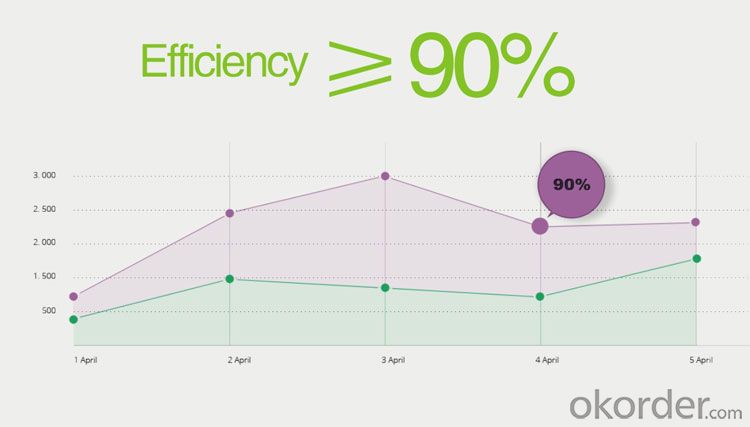
Features
Pure Sine Wave Output;
High performance Maximum Power Point Tracking(MPPT);
Power Automatically Locked(APL);
Reverse power transmission;
High-Frequency High Conversion Rate;
Anti-Islanding Protect;
Input /output is fully isolated to protect the electrical safety;
Multiple parallel stacking;
The Leading Patent Technology;
IP65 WaterProof;
Flexible Installation;
Simplify maintenance (user serviceable)
Our Service
1. Samples
Samples are Available for Testing and Market Test.
2. Warranty of Unipower Products
Unipower provides warranty against defects in materials and workmanship for its Uninterruptible power supply, Power inverter/chargers including inverter12v 24v 48V, Solar charge controllers (“Product”).
3. Guides and After-service Consultancy
Unipower Power Team will offer these guides below.
A. Need an Accessory?
B. Products Repair?
C. Power Problems to Solve?
D. Power Protection Solutions, etc.?
24 Hours After-service consultancy just for you and to make your problems to solve easily.
4. OEM Service
OEM service of Unipower is strictly based on the ISO9001 ISO14001 quality assurance system. The TOP involves the effective teamwork of departments from Sales, R&D, and Engineering, purchasing, production & QA, assuring a high quality product and prompt delivery for customers.
Images
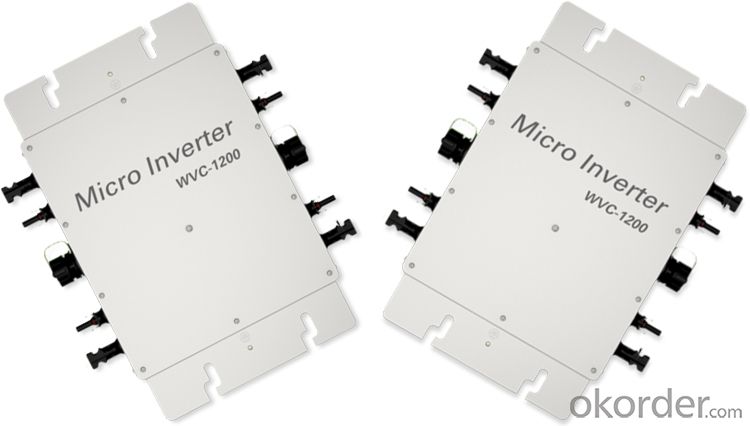
Specification
Input Data | KD-WV250-120VAC/230VAC | |||
Recommended input power | 200-300Watt | |||
Recommend the use of PV modules | 300W/Vmp>34V/Voc<50v< span=""> | |||
Maximum input DC voltage | 50V | |||
Peak power tracking voltage | 25-40V | |||
Operating Voltage Range | 17-50V | |||
Min / Max start voltage | 22-50V | |||
Maximum DC short current | 15A | |||
Maximum Input Current | 9.8A | |||
Output Data | @120VAC | @230VAC | ||
Peak power output | 260Watt | 260Watt | ||
Rated output power | 250Watt | 250Watt | ||
Rated output current | 2.08A | 0.92A | ||
Rated voltage range | 80-160VAC | 180-260VAC | ||
Rated frequency range | 57-62.5Hz | 47-52.5Hz | ||
Power factor | >96% | >96% | ||
Maximum units per branch circuit | 15PCS(Single-phase) | 30PCS(Single-phase) | ||
Output Efficiency | @120VAC | @230VAC | ||
Static MPPT efficiency | 99.5% | 99.5% | ||
Maximum output efficiency | 92.3% | 94.6% | ||
The average efficiency | 91.2% | 93.1% | ||
Night time power consumption | <50mW Max | <70mW Max | ||
THDI | <5%< span=""> | <5%< span=""> | ||
Exterior | ||||
Ambient temperature | -40°C to +60°C | |||
Operating temperature range (inverter inside) | -40°C to +82°C | |||
Dimensions (WxHxD) | 191mm*1176mm*38mm | |||
Weight | 0.83kg | |||
Waterproof Rating | IP65 | |||
Cooling | Self-cooling | |||
Feature | ||||
Power transmission mode | Reverse transfer, load priority | |||
Electromagnetic compatibility | EN50081.part1EN50082.part1 | |||
Grid disturbance | EN61000-3-2 Safety EN62109 | |||
Grid detection | DIN VDE 1026 UL1741 | |||
Certificate | CEC,CE National patent technology | |||
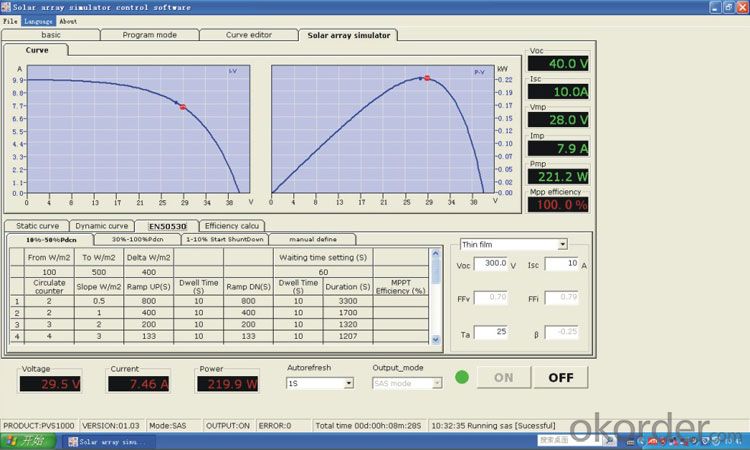 | ||||
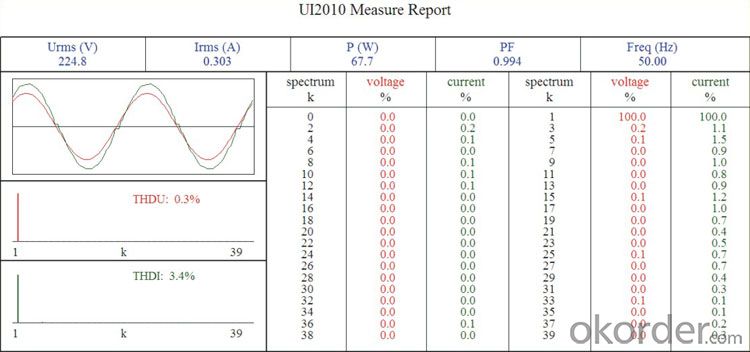
FAQ
Can we visit your factory?
Surely, I will arrange the trip basing on your business schedule.
Can you do OEM for us?
Yes, we can.
Can you help us install the module if we cooperate with you?
We haven’t entered into installation sector, but we have the plan in near future.
The solar photovoltaic micro inverter is a device which converts DC from a single solar cell component to an alternating current.
Micro inverter to convert the DC power is transformed from a single solar AC module, each solar battery module equipped with inverter and converter function. Each component can be separately in the current, so it is known as ""micro inverter"".
The micro inverter can achieve maximum power point tracking (MPPT) in the panel stage, and has the advantage over the centralized inverter. This can be carried out by optimizing the output power of each module, making the overall maximum output power.
In addition, and communication function combination, but also can be used to monitor the status of each module, to detect the failure of the module.
According to whether there is energy storage battery, it is divided into grid connected micro inverse and off grid micro inverse. According to the output voltage, it can be divided into single phase micro inverse and three-phase micro inverse.
Micro inverter technology proposed inverter directly with a single PV module integration, for each PV module with a single with AC / DC conversion function and the maximum power point tracking function of the inverter modules, electricity generated in the PV module can directly convert the AC power supply AC loads or transmitted to the grid.
From the current point of view, the advantages of micro inverter is very obvious. In practical applications, if the group of series inverter failure, it will cause thousands of watts of the battery plate can not play a role, and the impact of the micro inverter fault is quite small.
- Q: Can a solar inverter be used with a solar-powered agriculture system?
- Yes, a solar inverter can be used with a solar-powered agriculture system. A solar inverter is an essential component that converts the direct current (DC) electricity generated by solar panels into alternating current (AC) electricity, which is compatible with most electrical appliances and equipment. In the context of a solar-powered agriculture system, a solar inverter would be necessary to convert the electricity produced by the solar panels into the appropriate form for powering agricultural machinery, irrigation systems, or any other electrical needs on the farm.
- Q: What is the role of a reactive power controller in a solar inverter?
- The role of a reactive power controller in a solar inverter is to regulate and maintain the flow of reactive power to ensure a balanced and stable electrical grid. By dynamically controlling the reactive power output, the controller helps to improve power factor, minimize voltage fluctuations, and enhance the overall system performance and efficiency of the solar inverter.
- Q: Can a solar inverter be used with different tracking algorithms?
- Yes, a solar inverter can be used with different tracking algorithms. Inverters are designed to convert the DC power generated by solar panels into AC power for use in homes and businesses. They typically have the ability to integrate with various tracking algorithms that optimize solar panel performance by adjusting their position and angle according to the sun's movement. This flexibility allows for increased energy production and efficiency based on the specific tracking algorithm used.
- Q: Are solar inverters weatherproof?
- Yes, solar inverters are weatherproof. They are designed to withstand various weather conditions including rain, snow, and extreme temperatures. The enclosures of solar inverters are typically made of durable materials that provide protection against moisture and other environmental factors.
- Q: Are all solar inverters compatible with all solar panels?
- No, not all solar inverters are compatible with all solar panels. The compatibility between inverters and panels depends on various factors such as voltage, power rating, and technology used. It is important to ensure that the inverter you choose is specifically designed to work with the type and specifications of the solar panels you have.
- Q: What is the difference between a PV inverter and a solar inverter?
- The main component of the inverter is the three-phase bridge converter. The main purpose of the grid-connected inverter is to change the power to DC and change the AC power. The main purpose is to improve the power quality (because the wind power generation is very large
- Q: What is the role of fault ride-through capability in a solar inverter?
- The role of fault ride-through capability in a solar inverter is to ensure the stable and uninterrupted operation of the solar power system during grid disturbances or faults. It allows the inverter to remain connected to the grid and continue supplying power, even when there are short-term voltage dips or interruptions in the grid. This capability helps in maintaining grid stability and reliability while maximizing the energy generation from the solar panels.
- Q: Can a solar inverter be used in a stand-alone solar system?
- Yes, a solar inverter can be used in a stand-alone solar system. In fact, it is an essential component as it converts the direct current (DC) generated by the solar panels into alternating current (AC) that can be used to power electrical devices in a standalone system.
- Q: How does a three-phase solar inverter differ from a single-phase inverter?
- A three-phase solar inverter differs from a single-phase inverter in terms of the number of phases they support. While a single-phase inverter is designed to work with a single-phase electrical system, a three-phase solar inverter is specifically designed to handle three-phase electrical systems. This means that a three-phase inverter can handle higher power loads and is more efficient in distributing power across the three phases, resulting in better overall performance and stability for three-phase electrical systems.
- Q: Are solar inverters compatible with smart home systems?
- Yes, solar inverters are compatible with smart home systems. In fact, many modern solar inverters are designed to integrate seamlessly with smart home technology, allowing homeowners to monitor and control their solar energy production and consumption through their smart devices. This integration enables better energy management, increased efficiency, and the ability to optimize the use of solar power within a smart home ecosystem.
Send your message to us
Tesla Solar Inverter - KD-WVC1200 Series Micro Inverter:High Efficiency & Best Cost-Effectiveness
- Loading Port:
- China main port
- Payment Terms:
- TT or LC
- Min Order Qty:
- 1000 pc
- Supply Capability:
- 100000 pc/month
OKorder Service Pledge
OKorder Financial Service
Similar products
Hot products
Hot Searches
Related keywords
